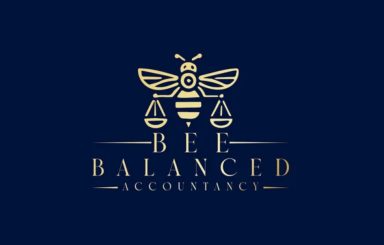
Bookkeeper vs. Accountant: Understanding the Differences and Why Your Small Business Needs Both
Bookkeeper vs. Accountant: What’s the Difference?
In essence, a bookkeeper focuses on recording and organizing financial data, while an accountant uses that data to analyze and interpret financial health, help with tax planning, and provide strategic advice.
Here’s a closer look at each role:
What Does a Bookkeeper Do?
A bookkeeper’s primary role is to ensure that every financial transaction is accurately recorded in the company’s financial books. This is essential to maintain a clear and current picture of your cash flow. Bookkeepers are typically responsible for:
- Recording day-to-day transactions, including sales, purchases, expenses, and payroll.
- Managing accounts payable and receivable.
- Reconciling bank statements.
- Maintaining general ledgers and other financial records.
Bookkeepers provide the foundational data that accountants and business owners rely on to make sound financial decisions. Their work might seem straightforward, but accuracy and attention to detail are crucial for creating a clear snapshot of the company’s financial state.
What Does an Accountant Do?
Accountants, on the other hand, use the data provided by bookkeepers to perform higher-level tasks that include interpreting, classifying, and summarizing financial information. Accountants generally:
- Prepare financial statements, such as profit and loss statements, balance sheets, and cash flow statements.
- Offer tax advice and file tax returns.
- Conduct financial analysis and help with budgeting and forecasting.
- Provide strategic financial advice to support business growth.
Accountants may perform some bookkeeping tasks in smaller companies or when needed, but they’re generally focused on providing insight and guidance based on financial records.
Why Small Businesses Should Invest in a Good Bookkeeper
For a small business, the quality of bookkeeping can significantly impact the business’s ability to grow, comply with regulations, and manage cash flow. Here’s why hiring a skilled bookkeeper is a valuable investment:
1. Foundation for Accurate Financial Data
Accurate bookkeeping is the backbone of any successful business. By maintaining organized records, a bookkeeper ensures that you have a reliable picture of your cash flow and expenses. This organized data is essential when you’re making day-to-day business decisions, seeking loans or investments, or simply tracking your financial progress.
2. Time Savings for Owners
Most small business owners already wear multiple hats, from marketing and sales to customer service and product development. Taking on bookkeeping tasks is not only time-consuming but also risky if you’re not familiar with financial record-keeping practices. Hiring a bookkeeper frees up your time to focus on growing your business, improving your product or service, and meeting your customers' needs.
3. Prevent Costly Errors
A bookkeeper's attention to detail can prevent costly errors that might go unnoticed until they become serious issues. For example, missed invoices or misclassified expenses could lead to cash flow problems or compliance issues. A professional bookkeeper ensures that all transactions are accurately recorded, reconciled, and categorized, so your financial records remain clean and compliant.
4. Improved Tax Compliance and Preparation
Come tax season, accurate financial records make all the difference. Bookkeepers keep your books current and organized, which can save you from last-minute scrambles to find receipts or correct errors. Accountants can then focus on maximizing deductions and planning for future tax obligations rather than fixing avoidable mistakes.
5. Better Decision-Making for Growth
A good bookkeeper provides business owners with the financial clarity they need to make sound business decisions. When you have accurate, up-to-date data on revenue, expenses, and profit margins, you can make informed decisions about hiring, investing, or scaling your operations. In contrast, businesses with disorganized books may find themselves making decisions based on incomplete or incorrect information, potentially jeopardizing their growth.
Can You Just Use an Accountant Instead?
While an accountant could technically handle bookkeeping tasks, this is generally not cost-effective for a small business. Accountants charge higher hourly rates than bookkeepers, and their time is better spent on tax planning, financial analysis, and other strategic tasks. By hiring a bookkeeper, you ensure that your financial records are accurate, freeing up your accountant to provide higher-level financial guidance.
Key Takeaway: Invest in Both for Financial Health
For small businesses, a bookkeeper and accountant each play essential roles in building and maintaining financial health. Your bookkeeper keeps your day-to-day finances organized and error-free, creating the foundation for accurate and insightful financial reports. Your accountant, meanwhile, can analyze this information to help you plan for the future, make tax decisions, and grow your business.
In short, while hiring both a bookkeeper and an accountant may seem like an added expense, the peace of mind, time savings, and potential for growth make it a worthwhile investment. A good bookkeeper can be one of the most valuable assets in your business, allowing you to focus on what you do best—running and growing your company.
If you’re a small business owner, you’ve probably heard about the importance of maintaining accurate financial records. Yet, the distinction between a bookkeeper and an accountant might not be clear. While both professionals deal with financial data, they play distinct roles that contribute uniquely to your business's financial health. Understanding these differences can help you make better decisions, especially when you’re on the fence about hiring a bookkeeper. Let's break down the roles and why a skilled bookkeeper can be a vital investment for small businesses.
© Copyright. All rights reserved.
We need your consent to load the translations
We use a third-party service to translate the website content that may collect data about your activity. Please review the details in the privacy policy and accept the service to view the translations.
